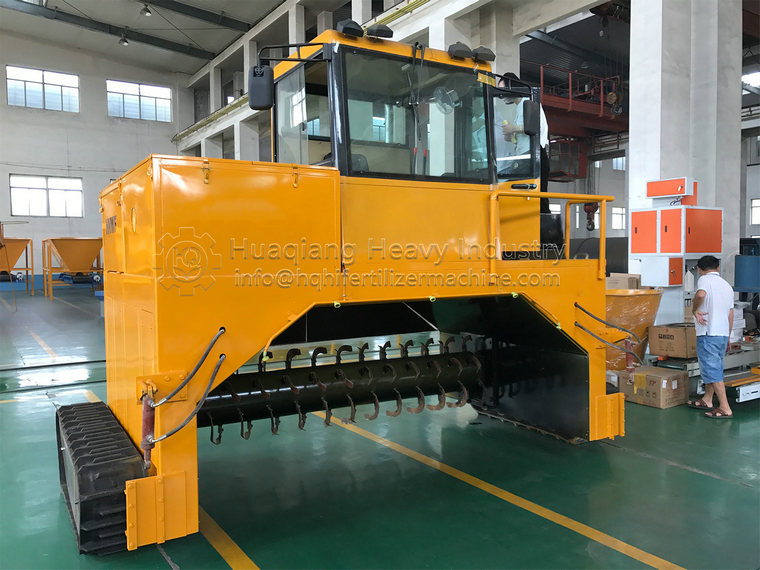When enterprises or farmers plan to purchase organic fertilizer composting machines, mastering the key points and referring to relevant suggestions can help them choose equipment that is suitable for themselves and ensure the smooth progress of organic fertilizer production.
Firstly, clarify the production scale and site conditions. If it is a small farm or breeding farm with low production demand and limited space, a small and flexible turning machine can be chosen, such as a small wheeled turning machine, which is easy to operate, occupies a small area, and can meet the needs of small-scale production. For large organic fertilizer production enterprises with high output requirements and open sites, it is necessary to choose large and efficient turning machines, such as crawler turning machines or large trough turning machines, to ensure production efficiency.
Secondly, consider the material characteristics. Different organic materials have differences in humidity, viscosity, hardness, etc., which can affect the flipping effect. For example, for materials with high humidity and strong viscosity, it is necessary to choose a flipping machine with strong flipping ability and less likely to clog; For materials with high impurities or hardness, the equipment needs to have sturdy and durable flipping components. Before making a purchase, it is necessary to provide a detailed explanation of the material situation to the supplier in order to select the appropriate model.
The quality of equipment is crucial. High quality organic fertilizer composting machines are usually made of high-strength steel for the body and key components, ensuring the stability and reliability of the equipment during long-term operation. Checking whether the welding process of the equipment is precise and whether the machining accuracy of the components is high are important aspects for judging the quality of the equipment. At the same time, it is necessary to examine the stability of the equipment and whether there are any abnormal vibrations and noise during operation.
The supporting facilities of the stacker cannot be ignored. For example, a reasonable feeding and discharging device can ensure smooth entry and exit of materials into and out of the stacker, improving production efficiency; Some stackers are equipped with crushing devices, which can crush larger materials while flipping, enhancing fermentation efficiency. A complete set of supporting facilities can enable the flipping machine to better function.
Price is a necessary factor to consider when making a purchase, but it cannot be solely based on the price. Devices that are too low-priced may have defects in quality and performance, and later maintenance and replacement costs may be higher. On the premise of ensuring that the quality and performance of the equipment meet production needs, multiple comparisons should be made to select products with high cost-effectiveness.
Finally, after-sales service is equally important. Choose a supplier with good after-sales service to receive professional support and assistance in equipment installation, commissioning, operation training, daily maintenance, and in case of malfunctions, ensuring the normal operation of the equipment and reducing production delays caused by equipment problems.
In short, when choosing an organic fertilizer composting machine, it is necessary to comprehensively consider multiple aspects such as production scale, material characteristics, equipment quality, supporting facilities, price, and after-sales service. Careful consideration of these key points is necessary to select the appropriate equipment that provides strong support for organic fertilizer production.